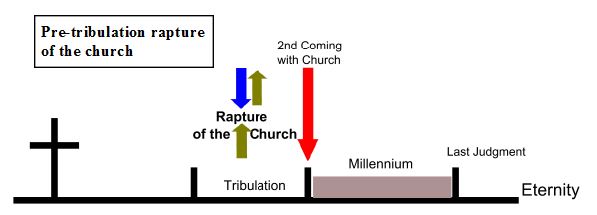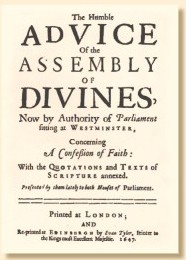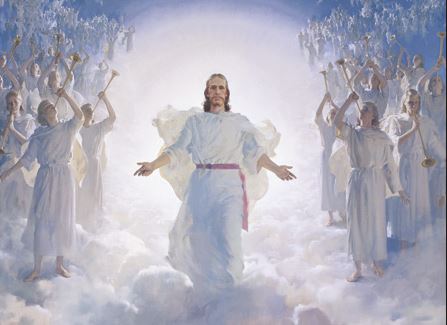 Related Articles
Related Articles
|
|
|
 Websites
Websites
|
|
|
|
|
Covenant Theology and Dispensationalism
Two contradictory and competing 'systematic theologies' have been, and remain very influential in shaping Christian belief and action.
 Note: The 'response' facility relating to this article is available to (logged on) site members only. Note: The 'response' facility relating to this article is available to (logged on) site members only.
Preface
The following article is a modified extract from an earlier article entitled 'A Covenant-keeping God'. The latter, which contains an overview of the major Biblical covenants, is itself part of a 'Drilling Down' series of articles (a 'work in progress').
-----------------------
Foreword:
Theological constructs;
frameworks of interpretation
(aka Systematic Theology)
REGARDING interpretational systems and frameworks or – to use the fancy term – hermeneutics, it is important to note the distinction between terms which are ‘theological’ and those which are ‘biblical’. Theological terms need to be treated with great caution.
Whilst they might be convenient in the discussion of key biblical themes and concepts (e.g. the term ‘Trinity’ as used in reference to the triune Godhead) these are essentially – in the grand sweep of history – neologisms.
They are essentially religious rather than biblical terms or, to use another word, ‘inventions’. They are often lacking clear definition and, across the Christian spectrum, experience differing levels of (dis)agreement and common understanding.
An example is the word ‘sacrament’. It is not found in the Bible and theologians have differed regarding the precise nature of a ‘sacrament’ and also what is (and isn’t ) covered by the term. (See New World Encyclopedia on the subject.) And the different opinions are not confined to the clichéd Roman Catholic/Protestant divisions. The Reformers Luther and Zwingli were famously in disagreement over Communion.
It is also important to differentiate between inductive learning and deductive reasoning. The former derives a view directly from (out of and formed by) the Bible text (exegesis): the latter is arrived at by a process of logic. For instance (and only for the sake of illustration) if it is held that God predestines some to salvation, then logic should dictate that God must, by extension, predestine some to a lost eternity. The use of logic can produce doctrines that are arrived at by eisegesis (reading into a Bible text from a particular and pre-suppositional theological framework).
Clever murder mysteries use 'deduction' to lead the reader or viewer on a false trail and to suspect the wrong person of the crime. (But of course Hercule Poirot's incisive and 'out-of-the-box' thinking shames the logic of we armchair sleuths every time.)
This is not to detract from the benefits of Systematic Theology which (in plainer language) is merely a themed approach to Bible study, but rather to highlight that theological suppositions should never be placed on a par with or, infinitely worse still, sit above the Word of God.
------------
Introduction
Two major theological systems -
(which contradict each other whilst also failing the Berean test: Acts 17:10-11).
 Caveat: Whilst focussing on particular interpretations, this is an 'equal opportunities' document in that it offers scope for upset right across the theological spectrum. Caveat: Whilst focussing on particular interpretations, this is an 'equal opportunities' document in that it offers scope for upset right across the theological spectrum.
In the Christian community across the world there are a variety of theological positions. However two of these have gained widespread support and – whilst disagreeing with one another – have both been highly influential in the formulation of belief. And it is important to stress again that these are theological constructs. The earliest of the two has been termed ‘Covenant Theology’ (mainly formulated and codified in the 17th century; see Footnote): the other being ‘Dispensationalism’ (with its origins in the 19th century).
The former is a central plank within Presbyterian churches around the world and across the (Presbyterian) denominational spectrum. The latter originated in the UK (pioneered by those within what became the Plymouth Brethren), but crossed the Atlantic to become hugely influential in the late 19th century. Dispensationalism informed the belief of the pentecostal churches at the start of the 20th century and has, since then, expanded both denominationally and geographically.
Covenant Theology

Covenant Theology (CT) developed two principal terms to describe its dual covenant interpretational framework viz. a Covenant of Works and a Covenant of Grace. (Some argue that there is only one covenant – the Covenant of Grace. Others include a Covenant of Redemption between the Father and the Son.) These theological terms have been employed to develop a whole range of doctrines and, because of the influence that they have had, we will (d.v.) come back to these later in more detail.
However, for the moment and with reference to the most common 'dual-covenant' view – developed first by Dudley Fenner, an English Puritan, in 1585; and then Scottish theologian Robert Rollock (1555 - 1598) – it is sufficient to say that the (theological) Covenant of Works is used to denote the period prior to the Fall in the Garden of Eden. In simple terms the Covenant of Works would say: “If Adam and Eve had obeyed the instructions given to them then they would have been OK. “ However Adam and Eve didn’t, so God had to embark on Plan B – the Covenant of Grace.”
This term – again simply speaking, but remembering that it is a theological expression, not a biblical, one – covers the continuous period from the Fall until the final consummation and Kingdom come.
However this span of time is (it is argued) split into two ‘administrations’ (again a non-biblical term); basically delineated by the Old Testament (OT) and the New Testament (NT) periods. In these two ‘administrations’ (it is said) God applied the same principles but in two different situations and in two different ways to the one people of God. These were Israelites in the OT and believers (Gentile and Jewish) in NT times.
Whilst this is a convenient hermeneutic, it is not biblical. The nation of Israel was in effect a theocracy within which some were in communion with God (cf Heb. 11) while others were very obviously not. In contrast the church (in the true sense of the bride of Christ) comprises solely of people in blood-bought communion with God.
So 'OT Israel = OT expression of church' is both overly-simplistic and grossly misleading . As a corollary, 'Church = Israel' is also untrue. (More on this below.) But as Covenant Theology has been widely accepted as ‘biblical’ it has led directly to (for instance) infant baptism. Accordingly paedobaptism is claimed to be the NT equivalent of circumcision – even though circumcision was never the symbol of salvation and union with God; and was only ever applied to males. [Again, more on this at later date (d.v.) when looking at 'Who are Abraham's seed?']
One of the other principal, and even more serious, mistakes deriving from Covenant Theology has led to what is commonly called ‘Replacement Theology’. This ‘theology’ – also termed Supercessionism – teaches that the Jews have now been ‘replaced’ by the mainly-Gentile church and (therefore, by deduction and logic) the promises to the Jews have now either all been fulfilled or spiritualised;or will find any contemporary or future fulfillment in the church. (So for instance many older Bibles have chapter headings for Isaiah 59 as “God’s curses on the Jews” and Isaiah 60 as “God’s blessings on the Church”.)
The ‘replacement’ view is most emphatically rejected by Paul in his letter to the (Jewish and Gentile) church at Rome. In fact this is his core message (Rom 11:1-2; 11-12) and the underlying reason for writing this – his longest – letter.
Dispensationalism

In contrast to Covenant Theology the other system of interpretation that has attracted widespread support is that of Dispensationalism.
There is a view that Dispensationalism (as distinct from, but embracing pre-millennialism) has its genesis in a Scottish believer (Margaret Macdonald; 1815-1840) and a Church of Scotland minister (Rev. Edward Irving; 1792-1834). What is undisputed is the fact the John Nelson Darby (founder of the Plymouth Brethren as a distinct grouping with its roots in the wider Brethren movement) is the latter-day father of this theological system. Darby took his pre-tribulation rapture teachings (the removal of believers from the earth prior to the return of Christ and before the ‘great tribulation’ of Matt. 24) to America where they were enthusiastically embraced by a lawyer called Cyrus I. Scofield (1843-1921).
Scofield in turn produced the Scofield Reference Bible (first published 1909) which is annotated throughout in support of Darby’s interpretations – especially with reference to eschatology, the end-time prophecies and events regarding Christ’s return. The Scofield Bible has been hugely influential right through to the present day – in America and right around the world. The teachings are now being propagated through the Moody Bible Institute in Chicago, Dallas Theological Seminary, and more than 200 other lesser-known Bible institutes..
Dispensationalism divides history into sections, covering the periods of Innocence, Conscience, Civil Government, the Patriarchs, the Law, Grace (the church age), the Millennium and the final consummation leading to the everlasting kingdom. However, and perhaps because this theological system lacks biblical warrant, there is a range of opinions (disagreement) on how many dispensations there are (varying from three to eight) and where, in history and in Scripture, the dividing lines lie.
But irrespective of the number of dispensations, the agreed assumption is that God has dealt differently with his world and its people in each of these different dispensations. Accordingly then a different hermeneutic needs to be applied to the different portions of Scripture which cover these different periods of time.
What is also generally agreed is that the church age is a parenthesis – a defined interlude – in God’s overall plan of salvation i.e. in the OT is God dealing through the Jews while the NT is the time of the Gentile church until Jesus’s rapture of the saints (with a pre/post/mid-Tribulation rapture range of views) . This will usher in a further period of God again dealing with and through the Jews.
Dispensational teaching has been greatly popularised and adopted through hugely-influential and best-selling books like Hal Lindsey’s ‘The Late Great Planet Earth’ (1970) and the ‘Left Behind’ series of novels by Tim LaHaye. The Left Behind books – the first in the series appeared in 1995 – have sold over 50 million copies, and have been turned into a cinema production. The books are freely available from and often prominently displayed in Christian bookshops.
As stated earlier, the core element of these novels is the ‘pre-tribulation rapture’ which, as already stated, teaches that all Christians will be suddenly and without any warning removed from the earth prior to the return of Christ. (See Footnotes.) However, and apart from the wider Christian community, even within the Brethren camp there was disagreement. George Mueller (of Bristol Orphanage fame) broke with Darby over this issue. The great Baptist preacher C.H. Spurgeon also declared the teaching to be unscriptural. Nevertheless the doctrine has persisted.
In summation...
Both Covenant Theology and Dispensationalism have been and continue to be highly influential in formulating Christian belief, but both are disputed.
Covenant Theology dismisses swathes of end-time prophecy as irrelevant or allegorical, and sees no place in God’s final purposes for the Jews other than (perhaps) a final ingathering as outlined in Romans. In terms of latter-day expectations prior to the return of Jesus, the former implicitly teaches a universally positive response to the Gospel (reading more into Matt. 24:14 than the verse allows; cf Matt 7:14).
Meanwhile, though recognising the prophesied 'time of great trouble' (Dan 12:1; Matt 24; 2 Tim. 3:1-12), Dispensationalism (in pre-tribulation rapture form), teaches that believers will be spirited away, leaving the Jews to face the music of Satan’s final onslaught. (See Footnotes.)
So while the Gentile believers look down from a safe vantage point in heaven (as God's 'heavenly people'), the Jews will be God's latter-day 'earthly people' who will suffer greatly but endure through the Great Tribulation. Within the Dispensationalist view, Matthew 24 (et al) and, for some, Revelation chapters 4 - 19 are seen as only of academic interest – given the belief that the Gentile saints will be in heaven during that period.
Regarding God’s end-time purposes for the Jews, Dispensational Theology cannot get the church and Israel together, whereas Covenant Theology cannot get the church and Israel apart. The former sees the Jews and the church as totally different entities separated by ethnicity and end-time progression, whereas the latter see Israel and the Jews as essentially an earlier expression of the church, differentiated only by two separate and distinct ‘administrations’ of time (OT/NT) in God’s grace. In fact Israel was/is a physical nation comprising the saved and the lost (Rom 9:7), whereas followers of Christ are a spiritual nation made up exclusively of the redeemed (Gal 3:7,8; 1 Pet 2:9).
At the very least it can be confidently stated that because these two systems disagree markedly with one another, they cannot both be completely right. (And it could be argued that in critical issues they are both wrong.) Yet both of these systems have created expectations and assumptions which could leave believers scripturally askew; vulnerable through false hopes; and ill-prepared to understand the times and the purposes of God in our day as the cosmic upheavals preceding Kingdom Come drawn ever nearer.
At the risk of vain repetition, the theological systems of Covenant Theology and Dispensationalism lack Biblical support in major areas of doctrine, theology and eschatology. Moreover they profoundly disagree with each other on very significant points – especially concerning the times preceding the coming again of Christ; the place of, and God’s purposes for the Jewish people; and the establishment of His everlasting kingdom.
Footnotes:
1. Pre-Tribulation Rapture of the church as taught by most Dispensationalists. The view held is that Christ will have two comings: the first will be invisible 'for the saints' and the second 'with the saints'.

-------------------
 2. The Westminister Confession of Faith (1644) codifies much of what is described as 'Calvinism' and is subscribed to as a 'Subordinate Standard' by Presbyterian denominations worldwide. 2. The Westminister Confession of Faith (1644) codifies much of what is described as 'Calvinism' and is subscribed to as a 'Subordinate Standard' by Presbyterian denominations worldwide.
The document is predicated on so-called 'Covenant Theology' and contains material which is, in the broad sweep of the formulation Biblical, extra-biblical, and unbiblical representing Truth mixed with error.
It is also deficient in failing to cover some some major biblical themes: making bare mention of the person and role of the Holy Spirit, and with no mention of the Great Commission.
3. The Millennium
 Broadly speaking Reformed (Covenant) theology teaches the Millennium as being a definite period prior to the coming again of Christ at the end of the age. However, the early church believed in a literal Millennial reign of Christ on earth. Broadly speaking Reformed (Covenant) theology teaches the Millennium as being a definite period prior to the coming again of Christ at the end of the age. However, the early church believed in a literal Millennial reign of Christ on earth.
While many today share this view, not all who do are Dispensationlists (i.e. all Dispensationlists are pre-millennial but not all Pre-Millennialists adhere to Dispensationalism). See article The (Coming) Millennium by a Scottish lay preacher and city mission superintendent. |
The Editor, 30/07/2013
|
(page
1
2
3
4
5
6
7
8
9
10
11
12
13)
| |
|
Colin Ford (Guest) |
10/08/2013 23:00 |
John (Ferguson),
This Scripture IS perfectly harmonious with the Second Advent; that is His ONCE second coming: The Lord indeed will COME with His saints! These ARE the saints who have been raised from the dead, and who have been "caught up, "gathered", or if you prefer raptured (post tribulational) alive". They WILL come with Him.
John (Miller), what are your thoughts on 2 Timothy 2.15?
What are we to make of it when you describe the Lord's Second Advent as a theory? I would refer you to His own words in Matthew 24.29-31?
If you would, please, just, ONE Scripture that teaches a pre-tribulational Coming?
If I may add; I only commented again on 1 Thessalonians 4.15, because, you have laboured on this one particular verse.
I think it somewhat unfortunate that the Editor had to put the image of the two boxers above? I therefore believe he knew what was coming!? But all that aside, surely, I hope you would agree, that this isn't about personal aggrandizement? This IS the Abiding Word of God that we are in somewhat of a contention about? Is it not only the truth that matters?
|
| |
|
John Miller |
11/08/2013 09:52 |
Colin I will return to this discussion tomorrow at the earliest. On the first day of the week, the Lord's Day, I have other more pressing matters to occupy me.
I wll make one comment however. I have never described the Lord's second coming as a theory. To say that is a deliberately false accusation. I must be faithful in stating this.
|
| |
|
Editor |
11/08/2013 12:41 |
Colin said: "I think it somewhat unfortunate that the Editor had to put the image of the two boxers above?"
The image is meant to demonstrate two heavyweight THEOLOGICAL SYSTEMS which conflict with one another (not people); and the article which heads up this thread is focussed on that theme.
The John/Colin conversation has (alternatively) focussed down on the timing and nature of the rapture. I trust that this and any other discussion can progress without conflict becoming personal.
The rapture question is an interesting and important one; but the bigger (and even more important) issue is that of whether or not there is a millennial reign of Christ on earth. (In contrast to the normative teaching of Covenant theologians, John and Colin would seem to agree that there is.)
|
| |
|
Colin Ford (Guest) |
11/08/2013 14:22 |
Editor,
Of course I entirely agree with you!
BUT! Who or what is behind these "heavyweight THEOLOGICAL SYSTEMS"? I should say, in every age; people!
Perhaps you should have put up a picture of J.N.Darby vs all the Church Fathers and 1800 years of Christianity?
Yes, of course you are right; both myself and John are in complete agreement that the Lord is coming again, and that He WILL set up a literal 1000 year reign.
It is the timing that we are in disagreement about. But this IS no small matter. I believe the Bible clearly teaches ONE group of saved people (in ALL ages), and that there will be ONE Second Coming, for those people.
Dispensationalism teaches that there will be TWO Second Comings, for TWO groups of saved people; these are thus called the "heavenly" and the "earthly", or the "Church" and "Israel"?
Editor, you CERTAINLY have my assurance that there is not anything "personal" in this discussion.
And yes you are correct; it would seem that we "Covenant theologians" that believe in a literal millennial kingdom are very, very much in the minority. I am presently reading a book by a Covenant theologian who doesn't believe in the coming 1000 year reign, it is an excellent work, apart from the fact that he is blinded to the yet unfulfilled OT prophesies that WILL yet come to pass.
This "debate" may be becoming very wearisome for many, but I do stress that it is a very, very important topic; Matthew 24.4.
These theological "labels" often hinder things, because most of those that hold to Covenant Theology believe that the Church has replaced Israel. The waters do get very muddy.
So obviously I concede that there IS error within conventional Covenant theology, and that there IS truth within Dispensationalism! But having said all this, there is NOT a halfway house; the Bible speaks the truth!
|
| |
|
Colin Ford (Guest) |
11/08/2013 15:18 |
John,
If I may quote your very words; "....to accommodate your post tribulation rapture theory".
I replied with the words; "What are we to make of it when you describe the Lord's Second Advent as a theory?"
You see, I DON'T have a "post tribulation rapture theory!"
I Just believe in THE Second Coming! The glorious Parousia!
Now, I would have thought, at least, by now, you would have understood that I believe in ONE Second Advent? That is ALL that I have been contending for, plain and simply that.
I believe in ONE Second Coming, according to the Scriptures.
I try NOT to use the word "rapture" whenever possible, because in these latter days it has taken on a meaning of it's own. I prefer always to talk of being "caught up","gathered" or "snatched". Now the word "rapture" is derived from a Latin word; and it does accurately convey these actions that I have just described.
When YOU talk of the "rapture", you mean an event BEFORE the "Second Advent", when I talk of the "rapture"; I am talking about THE "Second Advent". Do you see where I am coming from?
I am certainly NOT saying that you don't believe in THE Second Advent, but you DO believe in another coming before the Second Coming?
So, if plain English means anything anymore, how can I have made a "deliberately false accusation"?
May we all grow in grace and truth.
|
| |
|
Derek (Guest) |
12/08/2013 08:27 |
Hi John, other than a liberal sprinkling at Christmas time I suppose many people these days may hear of the name of Jesus as a result of issues like the Arab Spring and the present controversies which surround the Catholic Church, gay clergy and marriage proposals. But reality of course is that today “more than half the world” have no comprehension whatsoever who Jesus is and why He was born, much less than He is the Son of God and that His Kingdom has arrived. I suppose what Oswald and people like me are saying - why do we spend so much time and energy on discussing such weighty issues when our priority should be simply telling people why Jesus came into the world and why he died on the Cross?
|
| |
|
John Ferguson (Guest) |
12/08/2013 08:58 |
Colin I am glad you agree with me that the living saints.and those raised from the dead will return with Christ at.tte second advent,in order for that happen they must be raptured
before the second coming.
As regard dispensational teaching.Itis clear that God has spoken and done things differently in other ages.Heb 1 vs1-2 .When Cain slew his brother God did not allow him to be put to death,but after the flood God demanded the death penalty.Gen 9 v 6.During the period of the law the death penalty was required for commiting adultery.The keeping of sabbath was mandatory which is not required now.I could go on.
The editor's question will there be a millennial kingdom? My answeris clearly yes. The Lord taught us to pray Thy kingdom come Math 6v10.Isaiah ch 11is not a picture of eternity but one of the millennial kingdom.
.
|
| |
|
Editor |
12/08/2013 09:12 |
"I suppose what Oswald and people like me are saying - why do we spend so much time and energy on discussing such weighty issues when our priority should be simply telling people why Jesus came into the world and why he died on the Cross?"
It is vital that Christians share the Gospel of Jesus Christ. (This is a 'ministry' to the lost and to the world.)
It is also vital that Christians correctly understand the Scriptures and what they are saying to the age in which they live.
What Christians understand about Jesus's second advent will govern how they think and act. In this context, this thread is examining an area of God's word which is often neglected. (In contrast to the Great Commission, Bible exposition is a ministry to believers and the church.)
Apostles, prophets, evangelists, pastors and teachers all have their different roles parts to play in spreading the Gospel and building the body.
We should never set one role against another. And the nearer we get to Christ's return the greater the need to understand these 'latter day' doctrines.
I will (d.v.) summarise this discussion once it has run its course. Meanwhile, for those who wish please continue.
|
| |
|
Colin Ford (Guest) |
12/08/2013 14:14 |
John (Ferguson)
I think we have a misunderstanding here. There is NO rapture BEFORE the Second Advent.
The living and dead believers will be "caught up" at the Second Advent".
Indeed God "spake in time past unto the fathers by the prophets, hath in these last days spoken unto us by His Son" Hebrews 1.1-2.
The OT prophets looked forward to and prophesied about the Messiah. In these "last days" we have the fulfillment of these prophesies in the Lord Jesus Christ?
---
Ed footnote: I have deleted the rest of the above message as it related to the place of the OT commandments (and I have - exceptionally, as it takes up my time - posted it back to the sender for his record)
The place of the OT commandments will be (d.v.) the subject of a future article to which responses will be welcomed.
|
| |
|
John Ferguson (Guest) |
12/08/2013 20:13 |
Colin if saints living and the resurrect ones return with Christ at the second advent how can they come with him if they have not been taken there beforehand.
The point in my reference to Heb 1vs 1&2 God used different methods to convey his mind in the Old and New Testament which is in essence Dispensationalism.
Do you Colin belief in a literal kingdom of Christ on this earth? I think Isaiah ch 11 clearly teaches that there is
|
(page
1
2
3
4
5
6
7
8
9
10
11
12
13)
|
|
|